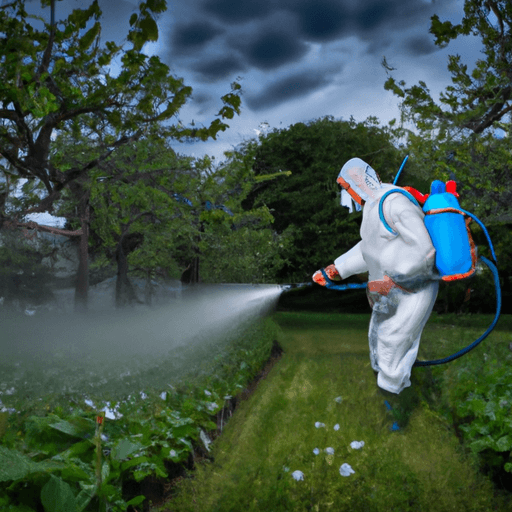Pesticides in Home and Garden Care: Advantages and Drawbacks
Pesticides are widely used for home and garden care, providing benefits such as increased crop yields, pest control, and improved soil health. However, the use of pesticides also carries risks, including potential environmental and health hazards. This article will discuss the advantages and drawbacks of using pesticides in home and garden care, analyze the potential risks associated with their application, and provide recommendations for using them safely and responsibly.
Advantages of Using Pesticides in Home and Garden Care
The primary benefit of using pesticides in home and garden care is increased crop yields. Pesticides are designed to kill or repel pests that threaten crop production, such as insects, weeds, and fungi. When used correctly, pesticides can help protect crops from damage, increasing yields and improving the overall quality of produce. Pesticides can also be used to control pests in the home and garden, helping to protect plants and structures from damage.
In addition, the use of pesticides may also improve soil health. Pesticides can help reduce the number of pests in the soil, allowing beneficial microorganisms to flourish and improving soil fertility. This can lead to higher crop yields and improved soil structure, contributing to better overall garden health.
Drawbacks of Using Pesticides in Home and Garden Care
While there are some benefits to using pesticides in home and garden care, there are also potential drawbacks. One of the most serious risks associated with the use of pesticides is the potential for environmental and health hazards. Pesticides can contaminate soil, water, and air, potentially harming wildlife and human health. Additionally, pesticides can be toxic to beneficial insects, such as bees and butterflies, which are essential to the pollination of many crops.
In addition, the misuse of pesticides can have serious consequences. Improper application of pesticides can lead to contamination of the environment, potentially leading to health issues for humans and wildlife. Overuse of pesticides can also lead to pest resistance, making them less effective over time.
Best Practices for Using Pesticides Safely and Responsibly
When used correctly, pesticides can provide many benefits for home and garden care. To ensure the safe and responsible use of pesticides, there are a number of best practices that should be followed. Before applying pesticides, it is important to read the label and follow the instructions carefully. It is also important to use the correct amount of pesticide and avoid over-applying. Additionally, it is important to choose the right type of pesticide for the job, and avoid using more toxic chemicals than necessary.
Finally, it is important to ensure that pesticides are stored and disposed of properly. Pesticides should be stored in a secure, dry place away from children and pets. Unused pesticides should be disposed of according to local regulations, and it is important to avoid pouring them down the drain or releasing them into the environment.
Conclusion
While there are potential benefits to using pesticides in home and garden care, it is important to understand the potential risks associated with their use. To ensure the safe and responsible use of pesticides, it is important to follow best practices such as reading the label, using the correct amount of pesticide, and storing and disposing of them safely. By following these guidelines, it is possible to take advantage of the benefits of using pesticides while minimizing the potential risks.
















Comments
Leave a Comment